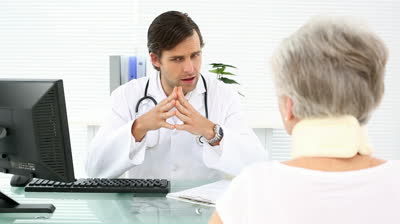 Many patients regularly attend GP clinics for a ‘check-up’. It is very refreshing when people take such a proactive attitude to their health rather than waiting to be unwell before they get checked out. Essentially, these patients are asking the doctor to help them be as healthy as they can be into the future.
Many patients regularly attend GP clinics for a ‘check-up’. It is very refreshing when people take such a proactive attitude to their health rather than waiting to be unwell before they get checked out. Essentially, these patients are asking the doctor to help them be as healthy as they can be into the future.
What is a general check-up/health screening?
I normally divide this type of request into two. I start with advice regarding healthy diet, smoking, alcohol consumption, lifestyle, exercise and stress management; then I discuss screening tests.
Screening tests are tests that look for diseases before you have obvious symptoms. Screening tests can find diseases early when they're easier to treat. Some screenings can be done in your doctor’s clinic whereas others need special equipment only available in hospitals.
What illnesses can I be tested for?
Some conditions that doctors commonly screen for in GP clinics include:
-
High blood pressure,
-
Obesity and Body Mass Index,
-
High cholesterol,
-
Diabetes,
-
Anaemia,
-
Vitamin deficiencies (Vit D, Vit B12, folic acid),
-
Cervical cancer in women,
-
Prostate cancer in men,
-
Colorectal cancer.

Screening for the following conditions requires hospital referral:
- Osteoporosis
-
Breast cancer
What factors are taken into consideration when deciding which tests to perform?
Which tests you would benefit from depends on your age, your sex, your family history, and whether you have risk factors for certain diseases.
Will I need to give blood?
Yes, a simple blood test will form part of your health screen. The doctor or nurse will also do a physical examination measuring your height, weight, body mass index and blood pressure.
A cervical cancer screen involves having a smear test. A cervical smear is free between the ages of 25 and 60. A bowel cancer screen checks for blood in the stool and does not require an intimate examination, as a stool sample provided by you at home can be sent to a lab for analysis.

How should I prepare for a health screening?
As you can see, a simple ‘check-up’ can be quite complicated, and you should probably have one full appointment with your doctor when undergoing this. Alternatively you can attend a clinic that offers dedicated health screenings. This will ensure that your screening visit provides you with the most comprehensive service available. You should fast for 12 hours before the blood tests are taken.
What screening should a mum typically undergo?
Under the age of 40, women should consider being screened for High Blood Pressure, Body Mass Index, Anaemia, Diabetes, High Cholesterol, Vitamin deficiencies and for cervical cancer.
Other screening tests will depend on your family history. For example, if you have a family history for breast or bowel cancer you should consider a screen for these cancers. The HSE runs formal breast and bowel cancer screening programmes for patients over the age of 50.
Union Quay Medical Centre run screening clinics in Cork city centre and Dundrum shopping centre. For more information regarding health screening or to book an appointment, follow this link.







